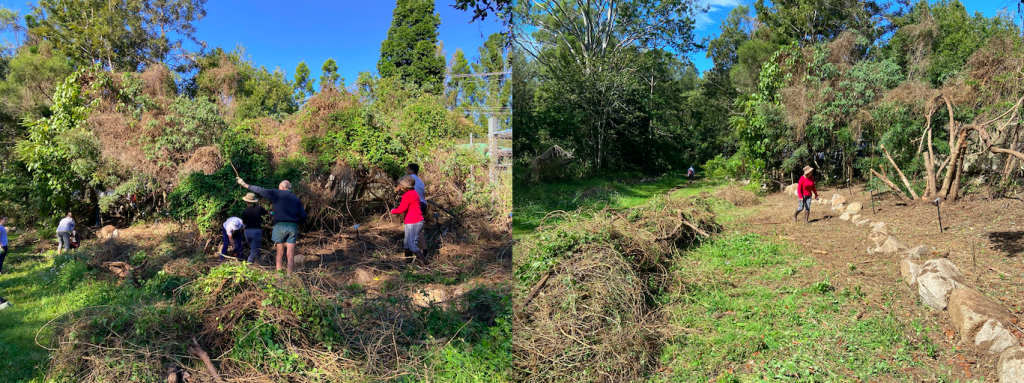In the winter 2019 issue of the MCCG Newsletter, a photo of a Bunya Pine was incorrectly labelled as a Hoop Pine. This was corrected by in the Autumn 2020 issue, where it was pointed out that the Hoop Pine (Araucasia cunninghamii) has much smaller leaves than the Bunya Pine (Araucasia bidwillii). These two types of native pine can also be readily distinguished even from a distance by differences in shape and form. The photo below shows a Bunya Pine (on the left) growing next to a group of Hoop Pines in Rowena St. park, just across the footbridge from the Rafting Ground Reserve.
Here is the link to read the Autumn Newsletter

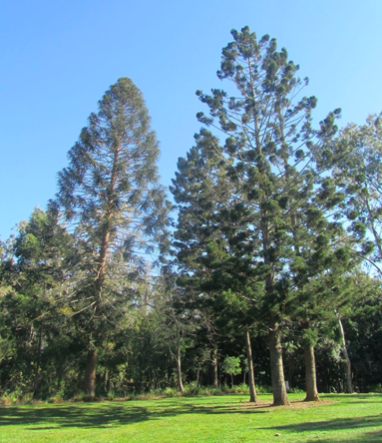
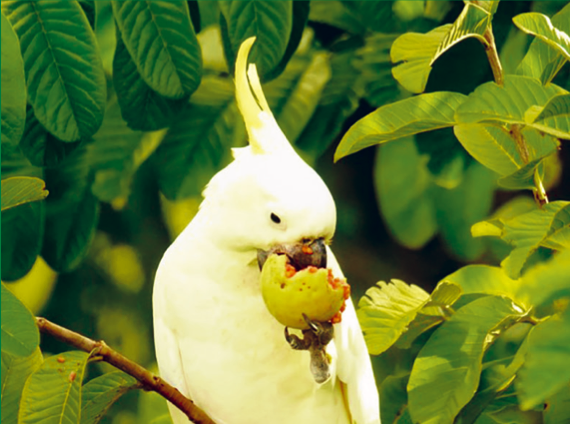
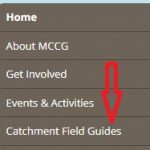
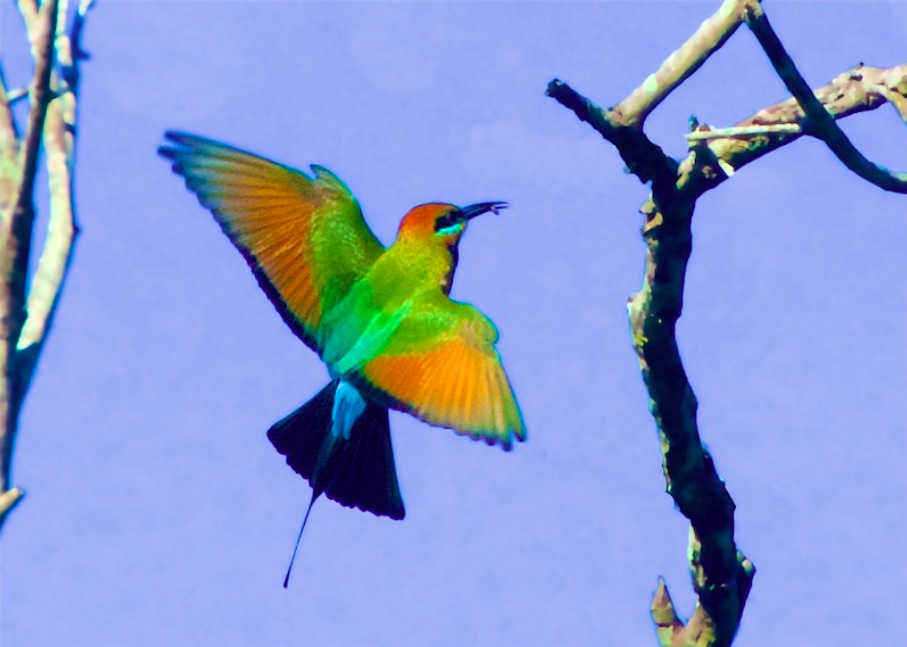
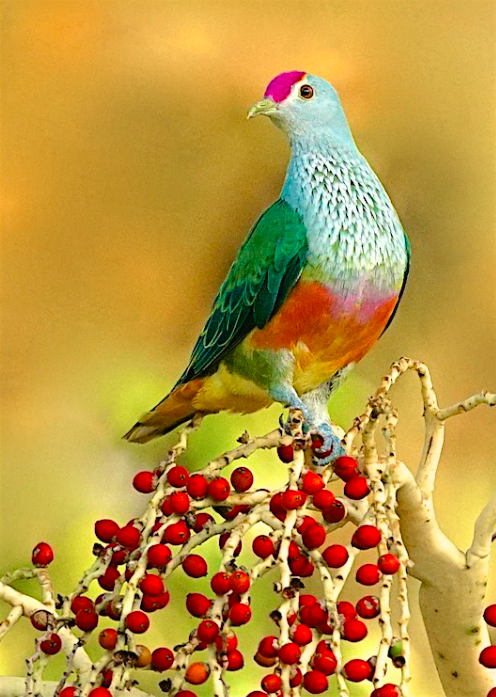
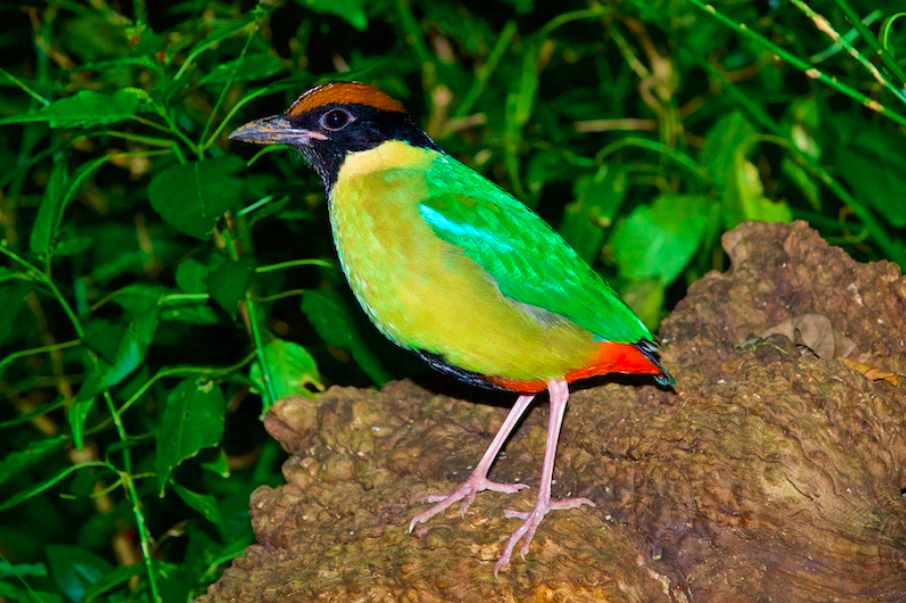
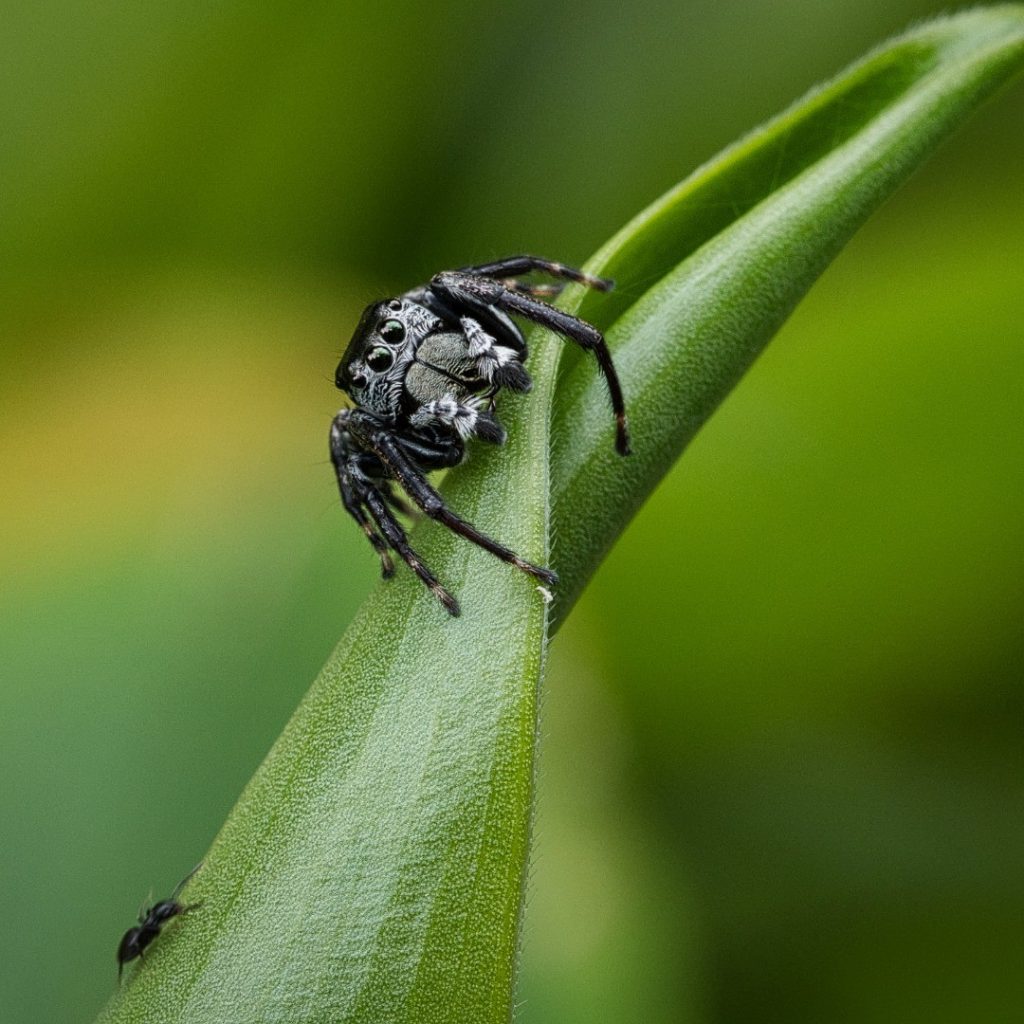
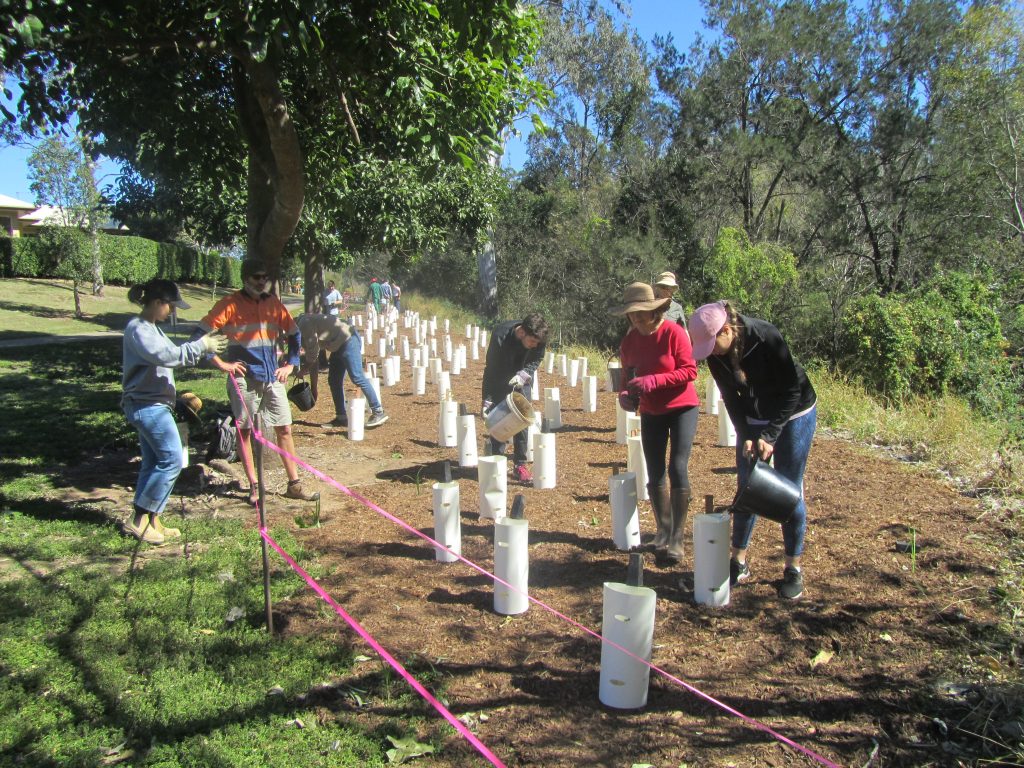
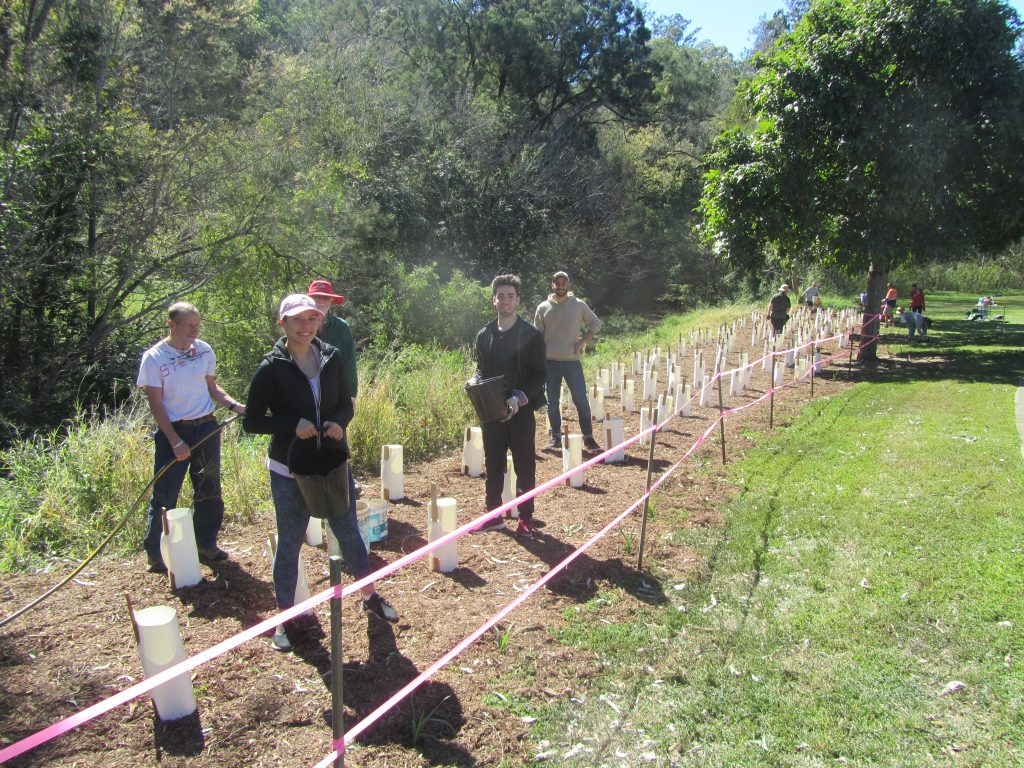
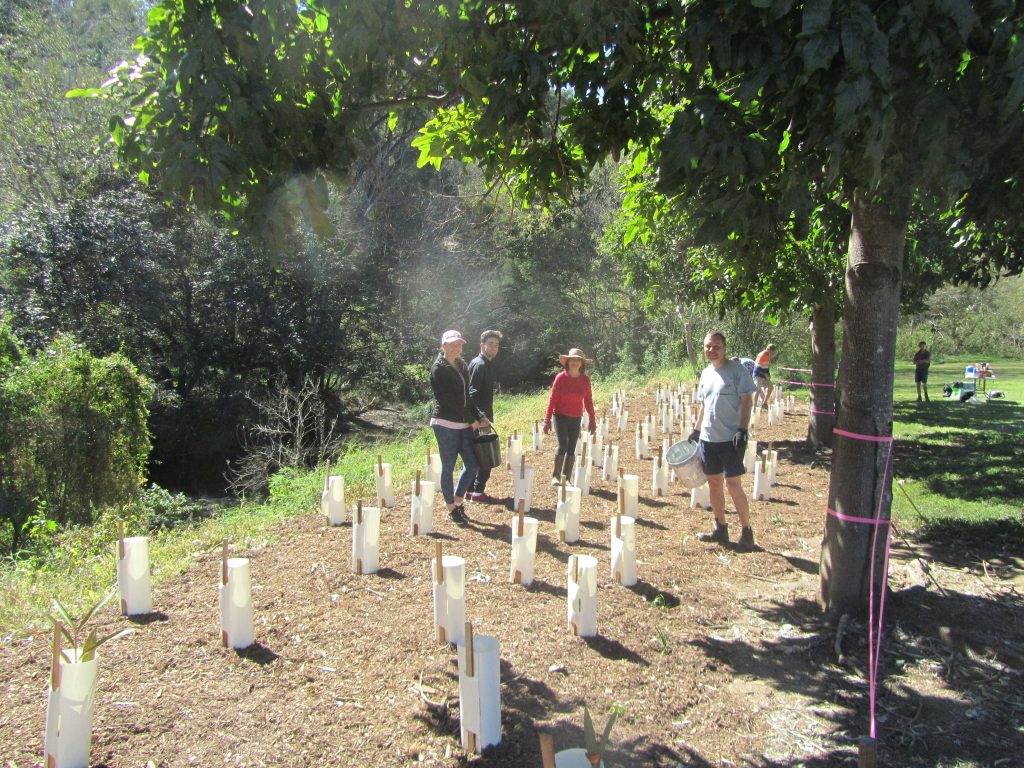
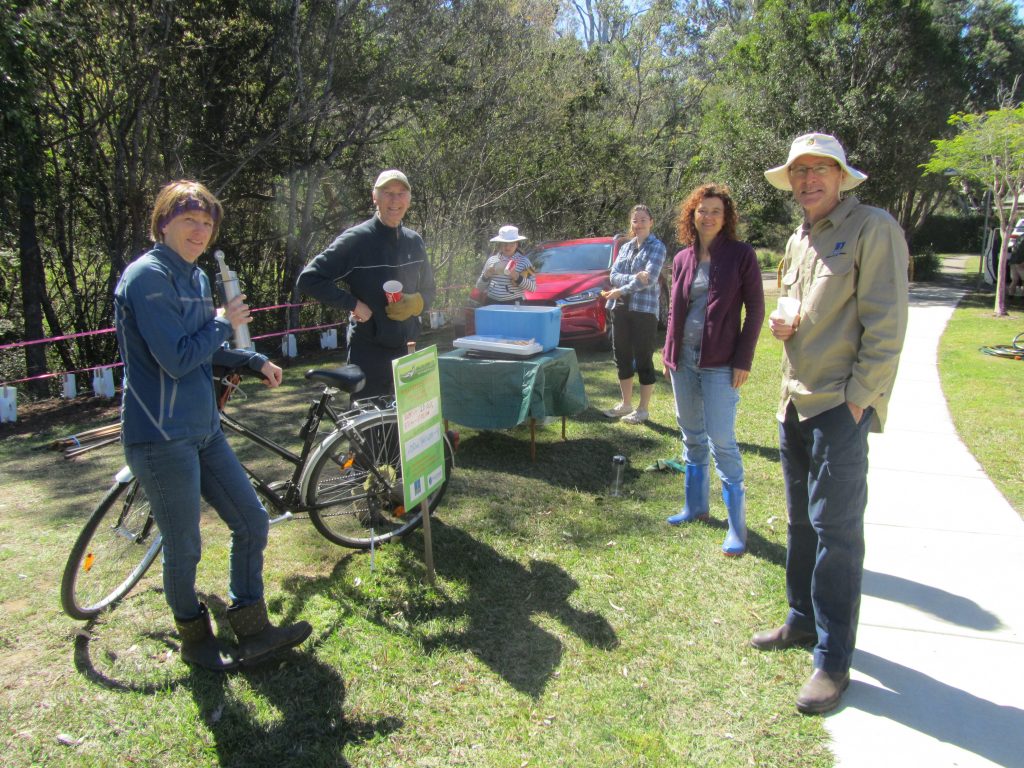
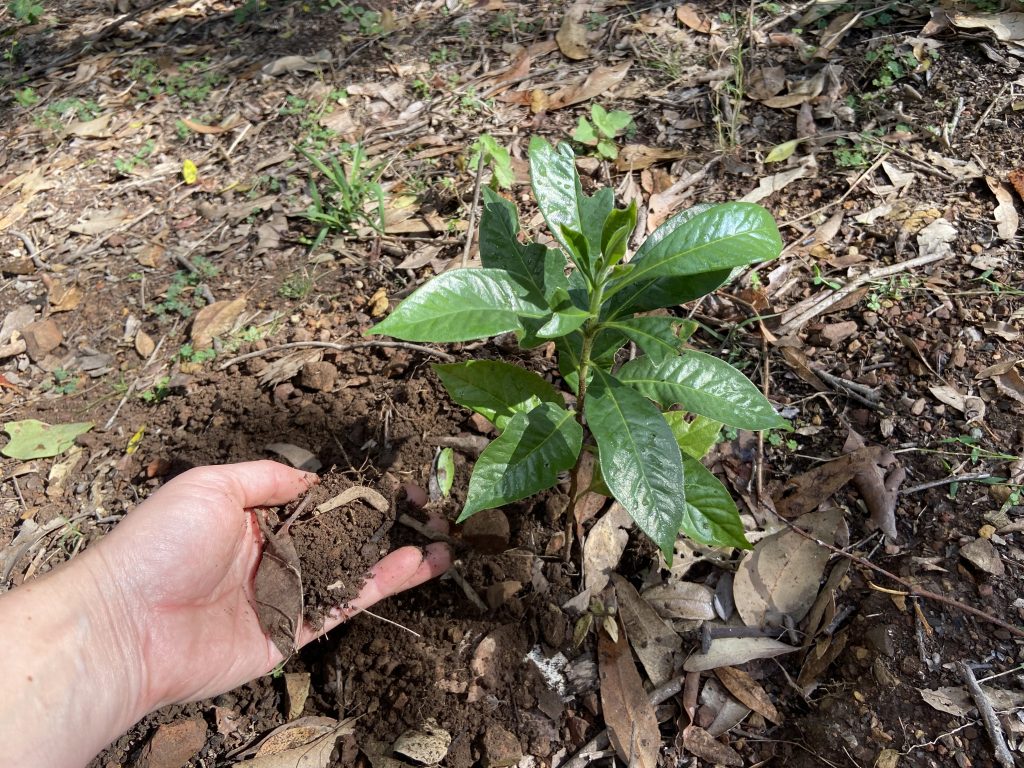
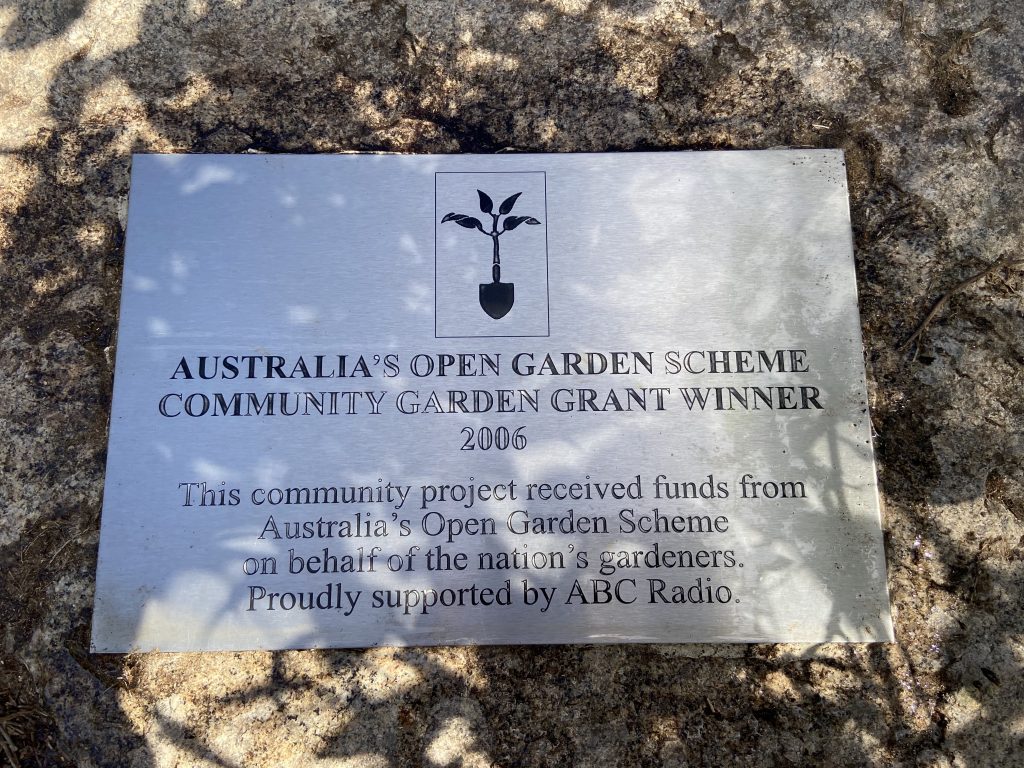 Plaque commemorating establishment of the ‘Bush Tucker’ Garden in 2006
Plaque commemorating establishment of the ‘Bush Tucker’ Garden in 2006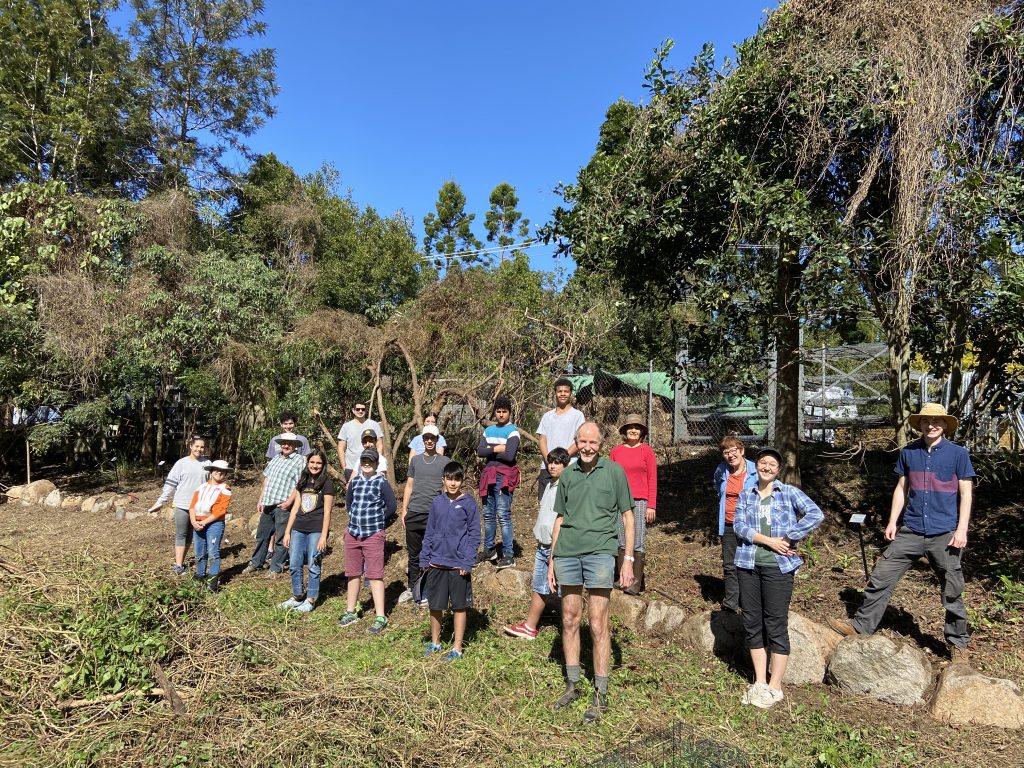 Volunteers at the working bee on 9 th August
Volunteers at the working bee on 9 th August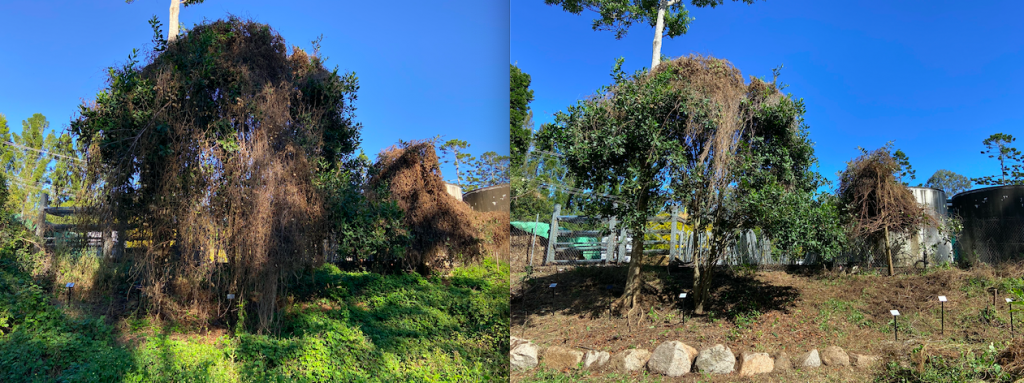 Before After
Before After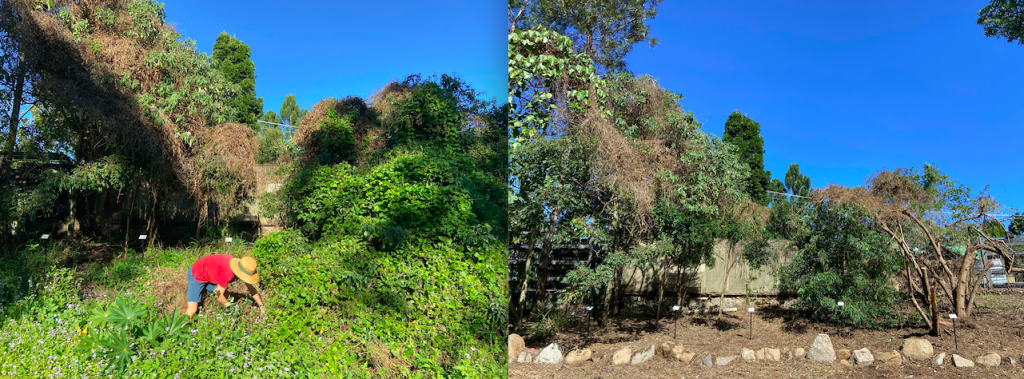 Before After
Before After